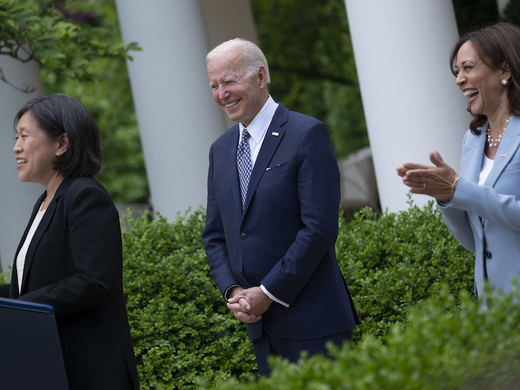About the Authors
Oonagh E. Fitzgerald was director of international law at CIGI from April 2014 to February 2020. In this role, she established and oversaw CIGI’s international law research agenda, which included policy-relevant research on issues of international economic law, environmental law, IP law and innovation, and Indigenous law.
Mira Burri is a senior lecturer in the Faculty of Law at the University of Lucerne, Switzerland. She teaches international intellectual property, media, internet and trade law. Her current research interests are in the areas of digital trade, culture, copyright, data protection and internet governance.
Chios Carmody is associate professor and Canadian national director of the Canada-United States Law Institute in the Faculty of Law at Western University. He is also a former CIGI senior fellow.
Dan Ciuriak is a senior fellow at CIGI, where he is exploring the interface between Canada’s domestic innovation and international trade and investment. He is the director and principal of Ciuriak Consulting, Inc.
Aaron Cosbey is a development economist with more than 25 years of experience in the areas of trade, investment and sustainable development. His work cuts across a number of program areas at the International Institute for Sustainable Development, with emphasis on climate change and energy, trade and investment law and policy, subsidies and green industrial policy.
Thomas Cottier is a member of the international law advisory committee at CIGI, professor emeritus of European and international economic law at the University of Bern, senior research fellow at the World Trade Institute and adjunct professor in the University of Ottawa’s Faculty of Law.
Henry Gao is a CIGI senior fellow and a law professor at Singapore Management University.
Valerie Hughes is a senior fellow at CIGI, senior counsel with Bennett Jones LLP and adjunct assistant professor in the Faculty of Law at Queen’s University.
Laura Lane joined UPS in November 2011 as president, Global Public Affairs. In this role, she is responsible for all worldwide government affairs activities for UPS among the more than 220 countries and territories it serves. Prior to joining UPS, Laura was managing director and head of International Government Affairs at Citigroup.
Chin Leng Lim is the Choh-Ming Li Professor of Law and practises with a leading London commercial set.
Spyros Maniatis joined the British Institute of International and Comparative Law as director in September 2018. He was previously professor of intellectual property law and head of the Centre for Commercial Law Studies (CCLS) at Queen Mary University of London.
Andrei Marcu is currently a senior fellow at the International Centre for Trade and Sustainable Development and director of the European Roundtable on Climate Change and Sustainable Transition.
Petros C. Mavroidis is the Edwin B. Parker Professor of Foreign and Comparative Law at Columbia Law School. He teaches the law of the WTO. He also co-teaches a course on corruption and sports and a seminar on international trade regulation issues.
Rohinton P. Medhora is a CIGI distinguished fellow, professor of practice at McGill University, and an expert in international economic relations, innovation policy, development economics and governance.
Penelope Naas is UPS vice president and district manager for International Public Affairs and Sustainability, based in Washington, DC, and previously in Brussels, Belgium. She began her UPS career in May 2012, managing the Public Affairs team for the Europe, Middle East and Africa Region, and enhanced governmental understanding of UPS and the issues impacting the logistics industry.
Amrita Narlikar is president of the German Institute of Global and Area Studies in Hamburg, Germany, and professor at Hamburg University. Prior to coming to Hamburg, she taught at the University of Cambridge for 10 years and was also the founding director of the Centre for Rising Powers at the University of Cambridge from 2011 to 2015.
Balakrishnan Rajagopal is professor of law and development and head of the International Development Group in the Department of Urban Studies and Planning at the Massachusetts Institute of Technology (MIT). He is also the founding director of the Program on Human Rights and Justice and the founder of the Displacement Research and Action Network at MIT.
Giorgio Sacerdoti is emeritus professor of international law at Bocconi University, Milan, and a former member (2001–2009) and chairman (2006-2007) of the WTO AB.
Risa Schwartz is a sole practitioner, focusing on international law and the intersections between trade and investment law, environmental law and Indigenous rights. Risa formerly worked as a senior research fellow at CIGI, as counsel to the Ministry of Aboriginal Affairs in Ontario and the Ministry of the Environment, and as a legal officer at the WTO.
Jim Stanford is an economist and director of the Centre for Future Work, based at the Australia Institute. The Australia Institute is Australia’s most influential progressive think tank. The Centre for Future Work focuses on issues of work, labour markets, income, economic development, technology, inequality, skills and more.
Debra Steger is professor emerita at the University of Ottawa’s Faculty of Law and a senior fellow at CIGI and the C. D. Howe Institute. She was the first director of the Appellate Body Secretariat of the World Trade Organization.
Judy Whiteduck is the director of the Assembly of First Nations (AFN) Economic Sector in Ottawa, Canada. The AFN is a national advocacy organization representing First Nations citizens in Canada, including more than 900,000 people living in 634 First Nations and in cities and towns across the country.


